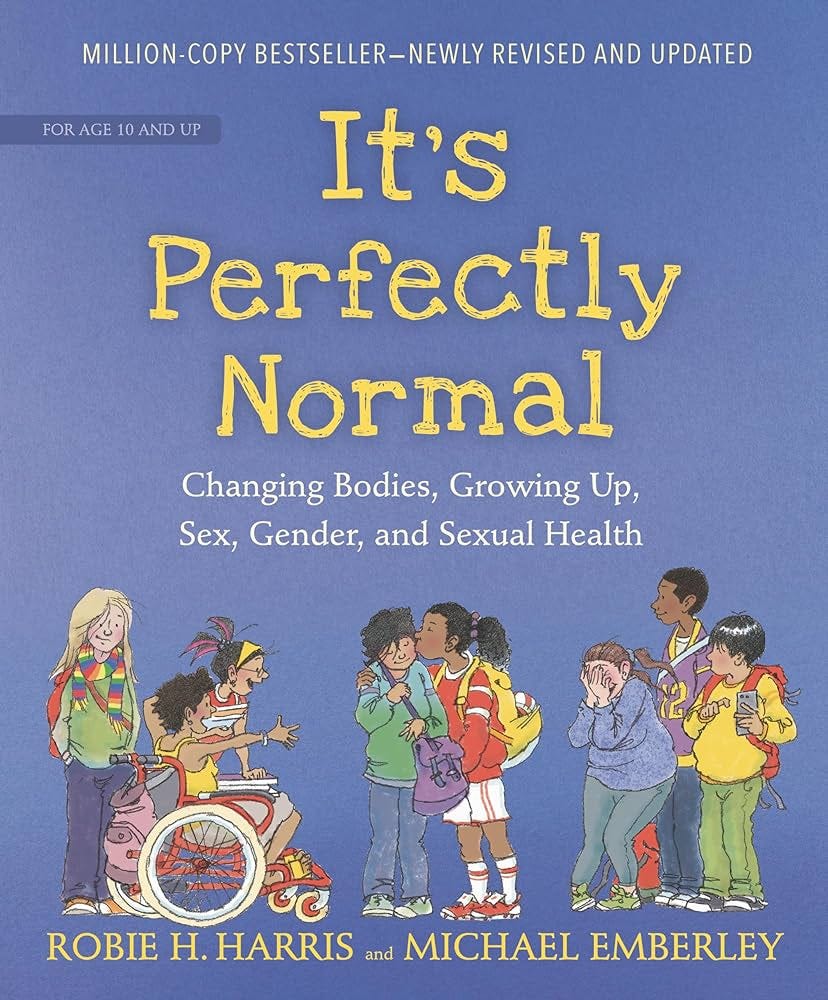Tomorrow.
Thanks for staying subscribed. It’s been a while… I’m still here, simply living day by day, trying to stay grounded in our ever-shifting world. I’ve been thinking about you ~
You, dear readers, are essential, and this community will change the world - one ordinary day at a time. Sexuality education will never go out of style. We have work to do and paradigms to shift. I appreciate you.
xo
Tara
So, tomorrow…
January 20, 2025.
Martin Luther King, Jr. Day. A day of service. A day of celebrating human equality.
Donald Trump will be inaugurated as the 47th president of the USA.
Tomorrow, my son and his friends will have a CHAOS Minecraft event (how apropos).
It’s going to be quite a day.
Let’s build better things over each subsequent ‘uneventful’ day.
BIG Things Happen in all the LITTLE Days
Every day, we have the chance to do small things to improve our children’s future.
Talk with them about sexuality education. Make it normal.
Normal to be gay, or transgender, or transexual. Normal for puberty to occur at different times for different people. Normal for consensual adults to be intimate.
No one is better suited for the job of sexuality educator than loving, well-intentioned parents. Parents who know their children. Perceptive parents can follow their children’s emotional and physical development and tailor conversations to their developmental needs.
Conversations can build over the years and happen at any time. Then, children grow up to believe and follow the values around sex and sexuality they learned from their parents.
Let’s Become The Role Models
Many of us don’t have an example to follow. What does it look like, or better yet, what does it emotionally feel like to have a parent who communicates openly, without judgment, about sex and sexuality? I don’t know. Do you?
I want my children to grow up with the mental, emotional, and somatic understanding that sexual health is not only normal but essential to a life well-lived.
Normalize Don’t Dramatize
Normalize
Talking about sexuality can be on the same normal level as talking about going to the doctor. It’s a normal, universal part of life. Humans have sexual reproductive systems. The systems get an update during puberty. Understanding our sexual reproductive systems and talking about emotions is a gift to your child. A gift that is on par with sending them to an expensive summer camp, or teaching them everything you know about baseball. It will enhance their life. In my opinion, sexual health equates to generational wealth. 1
Open, honest sex ed conversations bring families emotionally close.
Dramatize
Research shows that a ‘dramatized’ approach to sex ed can be exacerbated in low-income families. Fear and lack of resources fuel a strict, constricted approach to sex ed. There are dire consequences for families living on the edge; one misstep can lead to an even more destabilized life. Some parents may think that teaching about sex and sexuality invites young people to procreate, whereas the opposite is true.
Drama or tense feelings around sex ed leads to closed communication doors. Trying to control a teen’s behavior will likely lead to them pushing boundaries even further.
Trying to control a human by using shame is profoundly wounding. I’ll leave it at that. If you want to give your child a leg up on the future, try not to break them down with shameful sex ed talk (they’ll need a positive sense of self — iykyk).
Which Parent Should Educate?

Correct answer = All of them.
In many cases, children are more likely to talk with their mothers about sex and sexuality. However, I would argue that a father has a singular, important role model role to play by challenging the patriarchal status quo. Fathers can stop themselves from shutting down sexual health conversations. Many fathers change the topic and unconsciously model that sexual health topics are not an option.
Young people are perceptive little geniuses. They learn as much from our words and actions as from our silence and apathy. If mom is the only one talking about sexual health, what message does that send?
The divide does not have to be 50/50. Perhaps one person always does the talking, but the other person has a loving presence.
Feelings of shame and lack of skills may prevent some parents from participating in sex ed talks, but it doesn’t have to be that way. Maybe everyone sits together during a read-aloud, but only one parent talks.
Mothers & Fathers. Mothers & Mothers. Fathers & Fathers. PARENTS have the most influence.
Thank you for sharing your most valuable resource ~ your time and attention. Looking forward to sunset on January 20, 2025. 😉
that may be the title of my next post






